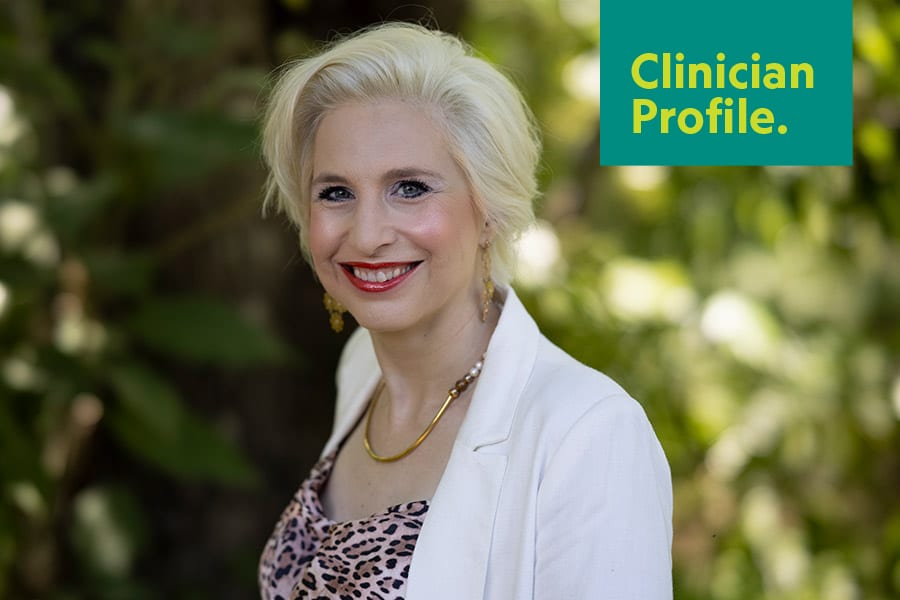The North Coast has recently become home for Sydney consultant rheumatologist, Dr Maxine Szramka.
“I’m delighted to be here,” she said speaking from her clinic in Cherry St, Ballina.
“Regional areas are under-serviced with specialist physicians. It’s absolutely amazing to come to an area like this where there is a desperate need for rheumatology services.
“I grew up in a regional area in Tasmania. I love regional Australia and I love being able to bring the highest standard of evidence-based medicine to people in regional communities.”
Maxine has worked in private practice for more than 10 years.
“That means I can offer the sort of precision and knowledge that comes from years of experience in busy metropolitan practices with access to a broader professional community and tertiary hospitals,” she said.
“I have particular expertise in managing inflammatory arthritis, complex and unusual cases, and all kinds of rheumatological conditions such as gout, lupus, scleroderma, sarcoidosis, rheumatoid arthritis, ankylosing spondylitis, autoimmune connective tissue diseases and musculoskeletal pain.”
Maxine graduated from the University of Tasmania with a Bachelor of Medicine, Bachelor of Surgery and a Bachelor of Medical Sciences.
She was fortunate to be able to gain three clinical years of training in rheumatology through the physician rheumatology training program at St Vincent’s Hospital, Melbourne, the Prince of Wales Hospital, Sydney and Liverpool Hospital, Sydney.
From there she entered private practice in Sydney and completed a Master of Health Policy at the University of Sydney.
“Rheumatology is something I’ve always had a natural affinity with. I am very much a patient-focused person, and rheumatology allows me the opportunity to combine my love of patient care with an overall understanding of the body, including the musculoskeletal system. It is very rewarding being able to improve people’s level of function and quality of life with great treatments. I love it,” Maxine said.
“Apart from my clinical practice, I’m very interested in health policy and decision-making and how it affects the health and wellbeing of everyone from the medical profession to the public. I did the Masters to understand how policies are made and to give myself the skillset to participate in policy making and support others in health policy development.”
Maxine is passionate about newer treatments known as ‘the biologicals’ for inflammatory arthritis such as rheumatoid arthritis and ankylosing spondylitis.
“Rheumatology has changed a lot over the last 30 years. Back then, we didn’t have a lot to offer as a treatment. Patients would get a diagnosis, then there wasn’t a lot you could give them apart from steroids.
“So, the joints would degrade, and the person might eventually become crippled and in a wheelchair. It was horrible and painful. Rheumatology patients filled the hospitals.
“But in the last 20 or so years, we’ve had amazing drugs that have come along. First there were the oral drugs known as DMARDs – disease modifying anti-rheumatic drugs, which made a radical difference. And now there’s this specific set of designer drugs that are engineered to target specific chemicals in the immune process.
“They’re called biologicals because they are made in living cells. Biologicals have revolutionised the treatment of rheumatoid arthritis and other types of arthritis that don’t respond well to regular drugs (DMARDs).
“They are giving people more quality of life and better control of their arthritis. They’re absolutely amazing because there are lots of different ones that target different chemical pathways. It gives patients so many options. If they don’t respond to one biological, they might have success with another one.”
Doctors can refer patients to Maxine via the contact details below.
Dr Maxine Szramka
MBBS Hons 1 B Med Sc FRACP
Master of Health Policy
Ph: 1300 00 Dr Max (1300 00 3762)
F: 1300 376 296
E: [email protected]
W: www.drmaxineszramka.com
Gold Coast Hand Therapy
31 Cherry Street, Ballina NSW
*Memberships & Associations
Maxine is a member of the Australian Medical Association (AMA), the Royal Australasian College of Physicians (RACP), The Medical Women’s Society of NSW, The Medico-Legal Society of NSW, and the Australian Rheumatology Association (ARA). She has served on the management committee of the Australian Doctors Federation and as the chair of the committee for Quality and Safety and has been on the committee for Professional Affairs for the ARA. She is a peer reviewer for an international scientific journal, a member of a policy reference group for the RACP, been published in scientific literature and has been an examiner for the Royal Australasian College of Physicians.
Be our next Clinician Profile
Sharing your story and promoting your services is a great way to create connections within your clinical community. It’s also a chance to celebrate the clinical talent we have across our region.
Our web visitors and newsletter readers would love to meet you, learn about your services, and why you enjoy being part of the North Coast community.
Nominate yourself or someone you know today — click here to arrange an interview and we’ll do the rest!
Healthy North Coast clinician profiles are for AHPRA-registered practitioners to help promote local services and initiatives that improve the health of our North Coast community.



